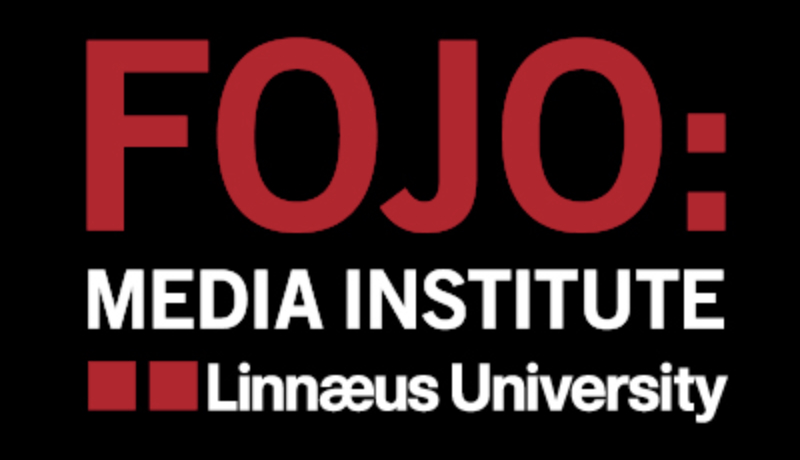
Media Helping Media is hosted by the Fojo Media Institute and is one of its official training resources.
From our BASIC JOURNALISM section
How to write a radio news script
Radio journalists writing a script need to be able to select the most newsworthy audio clips and write clear and informative links that highlight the most important elements and help the audience understand the significance of the points made
Court reporting for beginners
Reporting on court hearings is an essential part of journalism. It requires an understanding of local laws and knowing what can be reported and what can’t.
From our EDITORIAL ETHICS section
Unconscious bias and its impact on journalism
Journalists must not allow their own personal or political views to influence their pursuit of the truth. They need to remain objective and impartial, while also being aware of the dangers that unconscious biases can cause.
Integrity and journalism
Without integrity your journalism is untrustworthy and suspect. Integrity is essential if a journalist wants to investigate issues, shine a light in dark places, and to dig where others don't.
From our ADVANCED JOURNALISM section
Systems thinking for journalists
A free toolkit designed to help journalists adopt strategies that address the most entrenched societal problems and hold entire systems accountable
How to run an effective news meeting
Have you ever attended a dull news meeting where people are slouched on chairs, lacking ideas and unresponsive when called on? Here are some ideas for ensuring that doesn't happen.
 Unfortunately, Facebook has decided to disable our Media Helping Media Facebook group. Our Facebook page is still live.
Unfortunately, Facebook has decided to disable our Media Helping Media Facebook group. Our Facebook page is still live.
 Do you have any wisdom to share with those without access to formal training? If so please get in touch.
Do you have any wisdom to share with those without access to formal training? If so please get in touch.
 Media Helping Media (MHM) provides free training resources for those starting off in journalism. Read more …
Media Helping Media (MHM) provides free training resources for those starting off in journalism. Read more …
 The content on Media Helping Media (MHM) is released via Creative Commons BY NC SA 4.0. Please read the MHM copyright terms.
The content on Media Helping Media (MHM) is released via Creative Commons BY NC SA 4.0. Please read the MHM copyright terms.
10 tips for investigating corruption
An investigative journalist has to plot the geometry of bribery, determine the currency of influence, document the paper trail, and deal with threats and retaliation when investigating corruption.
20 ways a suspect can help a journalist
Sources are one of the most valuable resources for a journalist. Without sourced information, the reports produced may end up being padded with rumour and personal opinion.
How to investigate official documents
The investigative journalist never takes things at face value. They probe and question in order to get to the truth. If you are to uncover the story you need to keep asking questions.
Adopting the ‘big story’ approach
Planning is critically important in the news business. It’s the mark of professionalism and the essence of good coverage. But there are some things you can’t plan.Big stories happen out of the blue. And when they happen you have to spring into action immediately.
Social media in news production and news dissemination
Social media is an increasingly disruptive force on the media landscape. It challenges traditional, mainstream media to reconsider how they operate.
Story weighting system for breaking news
Introducing a story weighting system helps prioritises effort on the stories that are of most value to the target audience, it saves time, speeds up production, and helps avoid wasted effort.
Developing the potential of your staff
Media training is about investing in people - your staff. They are your most precious resource. Without well-trained and motivated staff, you will struggle to deliver the right quality of content to your audience.
Strategic forward planning for media organisations
This module looks at how media organisations need to plan ahead to produce original content that informs the public debate and covers the issues of most concern to the target audience.
Social media test for mainstream media
Does your media organisation have a social media strategy. Does it reach out and connect with your audience? There are many ways media organisations respond to social media, but here are three.
Journalistic integrity – scenario
You are a political broadcast journalist and are invited to speak at public event where the organisers want you to explain the role of the journalist in covering elections. After the event they offer you a gift, and ask whether you would be prepared to do some media training for politicians. What do you do?
Right of reply – scenario
Try our right of reply scenario where you are the editor of a morning radio news and current affairs programme and just before the bulletin you receive conflicting information that is too late to fact-check.
Interviewing integrity – scenario
An editorial integrity scenario where a journalist on a large salary faces the dilemma of whether to compromise their editorial integrity, become a whistleblower, or resign. What would you do?
Basic rules for delivering training
One of the first steps in delivering training is to articulate the ground rules. Participants need to know what to expect, what is expected of them and how you intend to schedule course elements.
12 tips for international media trainers
Those invited to help the media overseas need to ensure that the training they offer is continually refreshed so that it's up-to-date and sensitive to local issues and better addresses local needs.
Wanted, your media know-how
Are you a journalist, media manager or media trainer with some tips to share for the benefit of others? If so, please consider submitting a training module to Media Helping Media.




